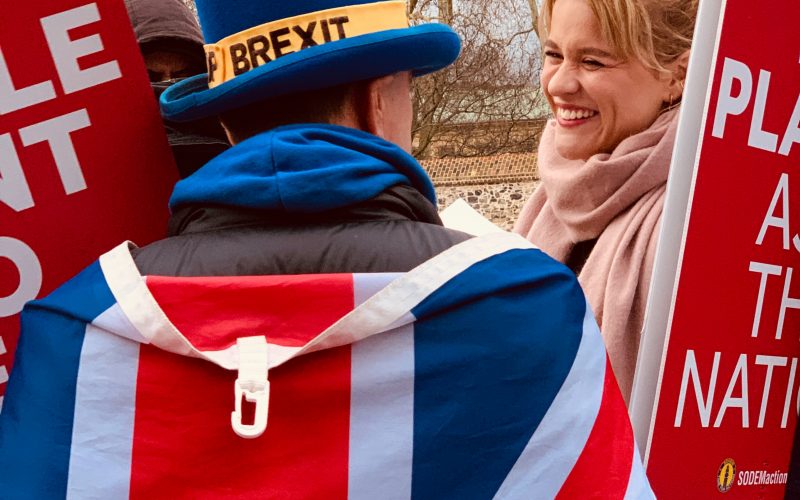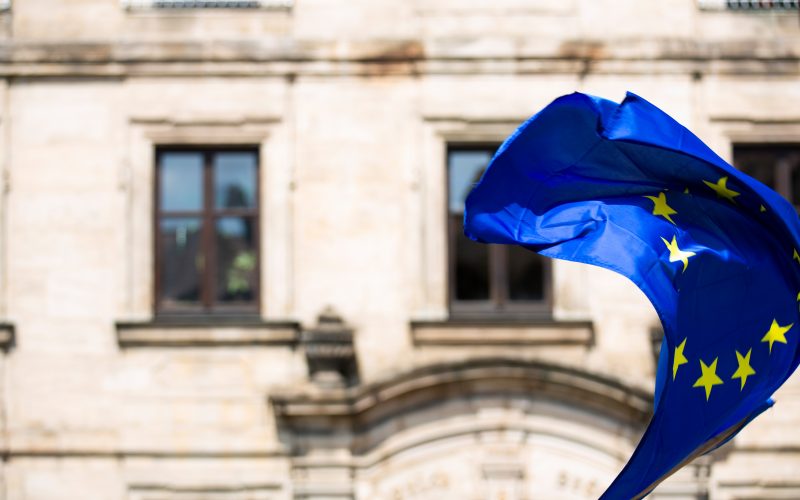To say this period of politics in the UK is interesting is an understatement.
Remain supporting politicians want us to stay in the EU. That much is clear.
They are also using every parliamentary trick in the book (including relying on their mate Mr Speaker) to effect their cause.
But I often think about what life would have been like in an alternative version of history. One where Leave didn’t win.
The day the result is announced, Prime Minister David Cameron resigns stating that even though he said he would stay on as leader if Remain won and enact the will of the people, he had changed his mind.
Sajid Javid becomes the leader of the Conservative Party and new UK Prime Minister, after Michael Gove declares his support for Theresa May early in the contest, only to stab her in the back later by splitting the vote in the next round.
Javid is a remain voting leaver, so remainers like him, but leavers do too for only supporting remain reluctantly.
In forming a cabinet he decides to unite the country by splitting his cabinet down the middle with 50/50 remain and leave supporters.
Leading remain supporter George Osborne is put in charge of a newly created department called “The Department For Reforming the European Union”.
Other prominent remainers are put in charge of Foreign Affairs and another new department for Global Trade.
Leading leave supporters are put in the treasury, home office, transport, health and education. (Michael Gove comes back as Chief Secretary to the Treasury after 6 months of loyal back benching).
In a surprise move, Javid delivers a letter personally to the EU Commission President triggering Article 50 and asking George Osborne to negotiate the deal that David Cameron always should have, for a new reformed relationship fit for the UK.
Javid makes a public statement on the steps of Number 10 explaining that the referendum result was so close that he couldn’t possibly ignore the 48% of leave voters and that therefore he was aiming for a specific half in/half out relationship with the EU so we could finally move on as a country.
Remain MPs are furious. Gina Miller starts legal proceedings.
The Liberal Democrats demand a second referendum even though they won the first one. They argue that a decision this big can’t be made by MPs or the government.
The Labour Party under Jeremy Corbyn produce 18 different policies on how the relationship with the EU should look.
While George Osborne is negotiating the softest possible deal with Michel Barnier, PM Javid announces immediate no deal preparations (with a full 20 months left to go of the article 50 process) and Dominic Raab the Chancellor of the Exchequer announces sweeping cuts to corporation and personal tax rates. In his conference speech Raab compares the UK to Hong Kong.
Steve Baker the Global Trade Secretary finds and exploits a loophole in EU law that effectively nullifies the Common External Tariff and announces an immediate unilateral reduction of all trade tariffs to zero. Countries queue up to sell us their cheap goods and envoys are sent around the world promoting the UK service industry.
The EU are furious and immediately launch a judicial review by the ECJ on the UKs actions, although this will take at least a year to resolve, during which time food and clothing prices in the UK plummet.
Along with the Raab tax cuts, the poorest in society end up proportionately being helped the most by having more cash in their pockets.
David Davis, newly appointed Minister of Deregulation, slashes red tape by eliminating 73 different quangos over a period of 6 months.
The subsequent 6 months see the largest expansion of new businesses the UK has ever seen and employment among under 45s hits 92%.
George Osborne resigns from the government along with the Foreign Secretary Theresa May a week later. In her resigning speech in the commons May sites the clear referendum result and that remain should mean remain.
The new Reforming the EU Secretary Jeremy Hunt negotiates a Free Trade Agreement with the EU and a unique Associate Membership that recognises the UKs supreme sovereignty as well as a mutual recognition of standards and regulations.
This withdrawal agreement is put to parliament but as Jeremy Corbyn can see full freedom from the EU in his sights, he announces he won’t support the agreement. In public he gives a speech stating that as a remain voter he has a duty to protect the UKs status in the EU and that the withdrawal agreement is Leave in all but name.
There isn’t a majority for the withdrawal agreement and the bill fails in the house of commons because Jacob Rees Mogg, who refused a cabinet position in order to lead the ERG leads a last minute group of Conservative MPs against it.
The UK leaves the EU, the Euro drops in value and Trump announces a trade deal with the UK that is “great, just great, huge”.
The day after, Anna Soubry and Dominic Grieve join the Liberal Democrats.
Ok so that was both self indulgent and a lot of fun to write. But is it any crazier a course of events than has actually happened? I don’t think so. Yet here we are.
Photo by Markus Spiske on Unsplash



